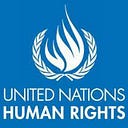#WikiForHumanRights: Promoting knowledge of human rights in a multilingual world
By Laurent Sauveur, Director of External Relations, UN Human Rights
Today, on International Mother Language Day, I am pleased to announce the results of the #WikiForHumanRights campaign that the UN Human Rights Office, the Wikimedia Foundation, and Wikipedia volunteers launched on December 10th. This partnership is an effort by our respective organisations to enhance the quality and quantity of human rights content on Wikipedia, in different languages. It captures our shared commitment to increase access to human rights information; and to promote the human rights to freedom of information and expression.
Online information about human rights can vary significantly between languages. #WikiForHumanRights addresses this situation by working with Wikipedia volunteer editor communities to create multilingual, ‘glocal’ content that affirms human rights for everyone, everywhere.
During the campaign, 287 new articles were created in Wikipedia. A total of 721 articles, covering a wide range of human rights topics, were edited in more than 12 languages by 210 editors. Articles dedicated to the Universal Declaration of Human Rights (UDHR), the world’s most translated document, were made available in an additional 9 languages. Collectively, participants added more than 486K words on Wikipedia.
I would like to sincerely thank all participants from the Wikipedia communities for your outstanding contribution to sharing critical knowledge about human rights in the online space. Through the power of multilingualism, you are helping more people understand and claim their rights, and also to engage in public processes necessary for achieving real, positive change.
Content created during the campaign powerfully responds to local needs and contexts, in creative and unique ways. On Wikipedia sites in Armenian, Macedonian, Swahili, Serbian, and Bengali, participants chose to fill in key concepts such as the “right to life” and other rights protected by the UDHR. On English and Spanish Wikipedias, the communities paid significant attention to biographies of rights defenders and activists.
Following an editathon in Tanzania, 41 new articles about human rights were created for Swahili Wikipedia, which has relatively few articles. This content included major Human Rights Conventions such as the Convention of the Rights of the Child, and the International Convention on the Protection of the Rights of All Migrant Workers and Members of their families.
A “#WikiForBlackClimateRights” campaign was launched by the Wikipedia community in Nigeria, in response to the highly publicized removal of Ugandan climate activist Vanessa Nakate from a press photo featuring other activists. The community will host events to highlight the wealth of African voices on climate action.
We are impressed by the accomplishments of Wikipedia volunteers, and look forward to deepening our partnership with the Wikimedia Foundation and volunteer editors to make all languages count in our goal to advance human rights, peace and sustainable development.
